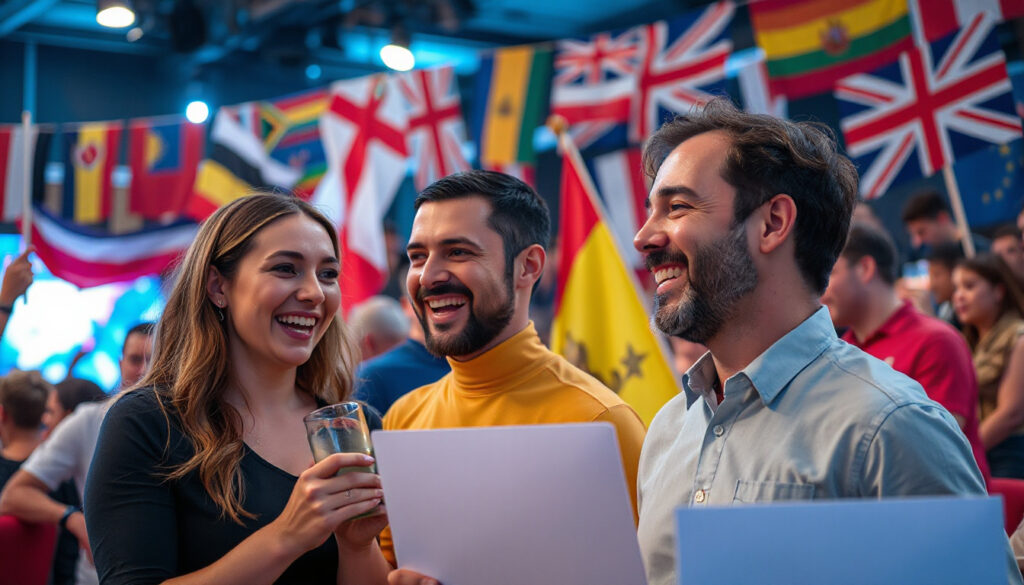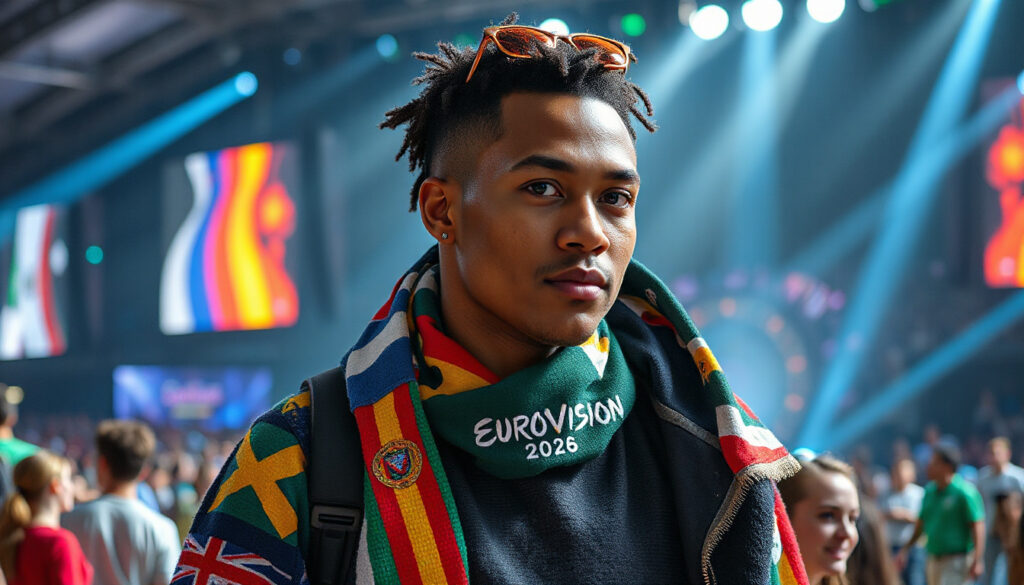Eurovision fans have seen a change in how languages occur. Performers now choose languages that speak close to home. Voting data shows signs of this change. Eurovision 2026 aims to show more native tongues from different parts of the world. Here is why language matters and what numbers tell us about Eurovision 2026 choices.

Why Language Matters in Eurovision
English once ruled Eurovision. The European Broadcasting Union allowed any language in 1999. Many countries then picked English.
Recent contests, including Eurovision 2025, show more acts choosing their own language. Artists feel a strong link to their culture. Singing in their own tongue brings the song’s story and local pride close to the heart.
Eurovision is more than a music contest; it is a mix of European culture. Singing in many languages shows that every voice and story belongs.
Language Diversity: A Record-Breaking Year in 2025
In 2025, Eurovision counted 20 different languages on stage. These languages included:
- Albanian (Gheg dialect)
- Armenian
- Finnish
- French
- Georgian
- Greek
- Hebrew
- Icelandic
- Italian
- Latvian
- Lithuanian
- Montenegrin
- Polish
- Portuguese
- Serbian
- Spanish
- Swedish
- Ukrainian
English stayed popular, yet more than half of the acts chose their native tongue. This fact shows a growing love for honest cultural expression.
Provisional Language Trends for Eurovision 2026
In Vienna, Austria, the 2026 contest will show more native languages. Early signs point to at least 30 different tongues on stage. Some reasons for this include:
- Austria, as the host, backs languages that stay true to cultural roots.
- More countries with less-seen European languages join.
- Fans now support songs that have a special cultural mark.
The official shows and messages will use about 37 languages. These include:
- Anarâškielâ
- Català
- Čeština
- Eesti
- Français
- Italiano
- Magyar
- Русский
- Suomi
- Svenska
- Türkçe
- Українська
- 中文
This wide mix of languages makes Eurovision close to a home for many viewers.
What Eurovision Voting Data Tells Us About Language Preferences
Voting in Eurovision links to many factors. Here are some key points from recent data:
- Songs in native languages get strong support from neighbors with shared ties. For example, entries in Slavic languages win support in Eastern Europe.
- Acts that mix English and another language draw votes from both a large crowd and fans who love local sounds.
- A song with a unique language often catches the attention of the jury if it tells a true story with clear beats.
- Even though many viewers vote for songs in English, native language songs tend to score higher with professionals who seek fresh ideas in music.
Eurovision 2026 may show more ties between votes based on tradition and votes based on a new view of what feels near and authentic.
How Performers Choose Their Language Strategy
Artists and teams think about many things when they choose a language for their song:
- They want to show who they are. Singing in a mother tongue builds a strong link with the audience.
- Some choose English or mix it with another language so that many people understand.
- Using a rare or local language helps a song stand out among many English songs.
- Teams also study past contests closely to decide which language might best attract votes.
The choice of language is a balance of being true, reaching many, and using smart tactics.
Predictions for Eurovision 2026 Language Preferences
Recent data and cultural change point to this for Eurovision 2026:
- More than half the songs might be in native languages. While English stays as a tool in some cases, native tongue use may become the norm.
- Songs with more than one language may grow in number. The mix gives a wide charm and a local touch.
- Underseen European languages may get more time on the stage. Many countries will use local dialects to show their deep roots.
- Fans who love a mix of languages will back acts that sing in their own words. Their votes may show a strong love for culture and true expression.
What This Means for Fans and Followers
If you plan to watch Eurovision 2026, here is what the change in language means for you:
- Get set for a rich mix of musical styles and unique songs. Acts may bring forward fresh views and local flavors.
- Not knowing every word will not stop the strong emotion in a performance. The music and feeling cross each word.
- The voting may shift as native language songs gain more praise, showing new patterns in vote alliances.
- A little research into the origins of new languages may deepen your experience. Each language tells a small, special story.
Takeaways for Eurovision Organizers and Artists
The latest numbers on language use in Eurovision show smart moves to make:
- Use native languages to put a strong, warm cultural beat in your show.
- Pair English with a native tongue to reach many while keeping character.
- Bring rare languages to the stage to fill it with true artistic color.
- Use language well to tell a song’s story in a way that ties together jury and audience.
- Watch voting trends to plan future song languages in a smart way.
Wrapping Up: The Power of Language in Eurovision
Eurovision shows the best of Europe in music and shared culture. The shift in language use is more than a style choice. It is a sign that viewers and artists see truth in tradition, identity, and a sense of belonging.
For Eurovision 2026, expect a lively chorus of many languages that makes the show warm and true. Whether you follow the contest long or just start, the mix of languages gives you a special look at the strength of music and cultural ties.
Ready to explore Eurovision 2026?
Follow the official channels and watch early 2026 for the list of acts and languages on stage. When voting starts, remember that every language seen and heard is part of Europe’s rich cultural heart. Join in and show your support by voting!







